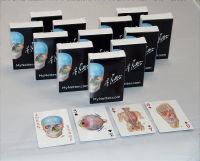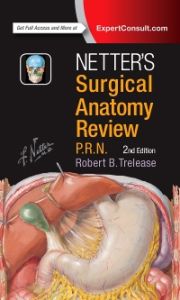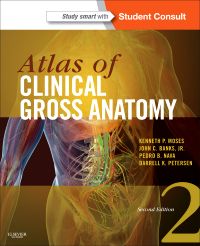Automation and Emerging Technology in Clinical Microbiology, An Issue of Clinics in Laboratory Medicine, 1st Edition
Author :
Carey-Ann D. Burnham
The field of Clinical Microbiology is evolving at a rapid pace, perhaps more so than any other arm of laboratory medicine. This can be attributed to new technology, including high throughput gene sequencing, multiplex molecular assays, rapid evolutio
...view more
The field of Clinical Microbiology is evolving at a rapid pace, perhaps more so than any other arm of laboratory medicine. This can be attributed to new technology, including high throughput gene sequencing, multiplex molecular assays, rapid evolution of antimicrobial resistance, and discovery of new pathogens. In addition, modern medical procedures, such as solid organ and stem cell transplantation, have resulted in an explosion of infections with agents that historically have been considered to be of low virulence. This issue of Clinics in Laboratory Medicine will highlight some of the advances in diagnostic microbiology, including MALDI-TOF MS, pathogen discovery, and personalized antimicrobial chemotherapy. In addition, one of the papers will focus on implementation of new technologies and how to maximize patient impact of these new methods.
The field of Clinical Microbiology is evolving at a rapid pace, perhaps more so than any other arm of laboratory medicine. This can be attributed to new technology, including high throughput gene sequencing, multiplex molecular assays, rapid evolution of antimicrobial resistance, and discovery of new pathogens. In addition, modern medical procedures, such as solid organ and stem cell transplantation, have resulted in an explosion of infections with agents that historically have been considered to be of low virulence. This issue of Clinics in Laboratory Medicine will highlight some of the advances in diagnostic microbiology, including MALDI-TOF MS, pathogen discovery, and personalized antimicrobial chemotherapy. In addition, one of the papers will focus on implementation of new technologies and how to maximize patient impact of these new methods.
Author Information
By Carey-Ann D. Burnham, Ph.D., D(ABMM), F(CCM), Washington University, St. Louis
| ISBN Number | 9780323188609 |
|---|---|
| Main Author | By Carey-Ann D. Burnham, Ph.D., D(ABMM), F(CCM) |
| Copyright Year | 2013 |
| Edition Number | 1 |
| Format | Book |
| Trim | 152w x 229h (6.00" x 9.00") |
| Imprint | Elsevier |
| Page Count | 0 |
| Publication Date | 2 Sep 2013 |
| Stock Status | IN STOCK - This may take up to 5 business days to ship |
Write Your Own Review
Only registered users can write reviews. Please sign in or create an account
product
https://www.us.elsevierhealth.com/automation-and-emerging-technology-in-clinical-microbiology-an-issue-of-clinics-in-laboratory-medicine-9780323188609.html
924
Automation and Emerging Technology in Clinical Microbiology, An Issue of Clinics in Laboratory Medicine
https://www.us.elsevierhealth.com/media/catalog/product/9/7/9780323188609.jpg
74.24
98.99
USD
InStock
/Clinics
/Clinics
/Medicine/Pathology
4388725
5255041
25
1
4182692
5145120
3
8
The field of Clinical Microbiology is evolving at a rapid pace, perhaps more so than any other arm of laboratory medicine. This can be attributed to new technology, including high throughput gene sequencing, multiplex molecular assays, rapid evolution of antimicrobial resistance, and discovery of new pathogens. In addition, modern medical procedures, such as solid organ and stem cell transplantation, have resulted in an explosion of infections with agents that historically have been considered to be of low virulence. This issue of Clinics in Laboratory Medicine will highlight some of the advances in diagnostic microbiology, including MALDI-TOF MS, pathogen discovery, and personalized antimicrobial chemotherapy. In addition, one of the papers will focus on implementation of new technologies and how to maximize patient impact of these new methods. The field of Clinical Microbiology is evolving at a rapid pace, perhaps more so than any other arm of laboratory medicine. This can be attributed to new technology, including high throughput gene sequencing, multiplex molecular assays, rapid evolution of antimicrobial resistance, and discovery of new pathogens. In addition, modern medical procedures, such as solid organ and stem cell transplantation, have resulted in an explosion of infections with agents that historically have been considered to be of low virulence. This issue of Clinics in Laboratory Medicine will highlight some of the advances in diagnostic microbiology, including MALDI-TOF MS, pathogen discovery, and personalized antimicrobial chemotherapy. In addition, one of the papers will focus on implementation of new technologies and how to maximize patient impact of these new methods.
0
0
add-to-cart
9780323188609
2013
Professional
By Carey-Ann D. Burnham, Ph.D., D(ABMM), F(CCM)
2013
1
Book
152w x 229h (6.00" x 9.00")
Elsevier
0
Sep 2, 2013
IN STOCK - This may take up to 5 business days to ship
By <STRONG>Carey-Ann D. Burnham</STRONG>, Ph.D., D(ABMM), F(CCM), Washington University, St. Louis
Clinics
Clinics
The Clinics: Internal Medicine
No
No
No
No
Please Select
Please Select
Please Select
Related Products
-
20% OFF
 Book
Nolte's The Human Brain in Photographs and Diagrams
Book
Nolte's The Human Brain in Photographs and DiagramsTodd W. Vanderah
Jan 2019
Special Price $51.19 $63.99 -
20% OFF
 Online Resource
Netter's Dissection Video Modules (Retail Access Card)
Online Resource
Netter's Dissection Video Modules (Retail Access Card)University of North Carolina Chapel Hill and Frank H. Netter
Oct 2015
Special Price $144.79 $180.99 -
20% OFF
 Flash Cards
Flash Cards
-
20% OFF
 Flash Cards
Flash Cards
-
20% OFF
 Flash Cards
Flash Cards
-
20% OFF
 Book
Book
-
20% OFF
 Book
Book
-
20% OFF
 Book
Book
-
20% OFF
 Book
Book
-
20% OFF
 Book
Book




